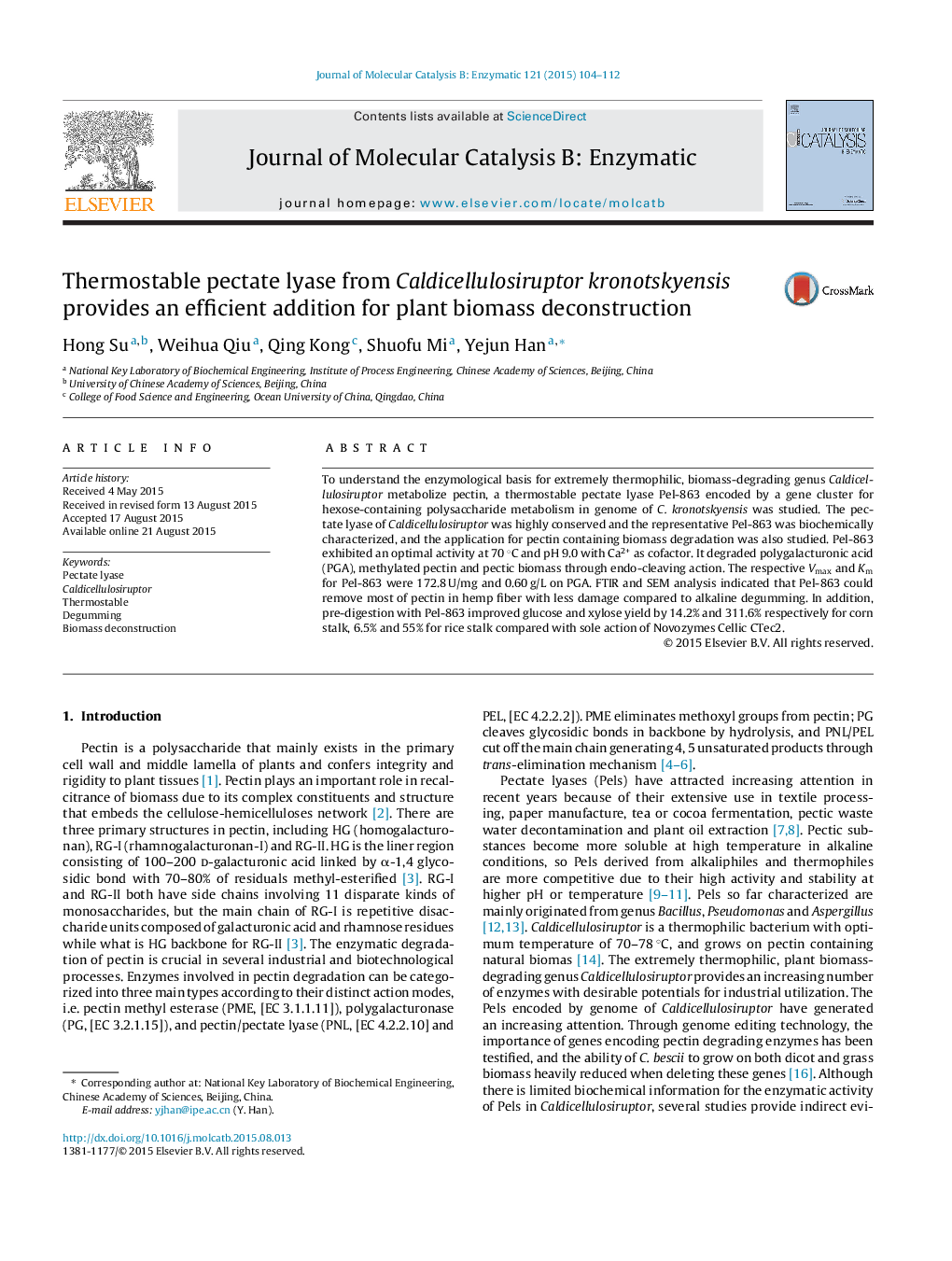| Article ID | Journal | Published Year | Pages | File Type |
|---|---|---|---|---|
| 69480 | Journal of Molecular Catalysis B: Enzymatic | 2015 | 9 Pages |
•Pel-863 is an alkaline and thermostable pectate lyase of C. kronotskyensis.•Pel-863 is encoded by gene cluster for pectic polysaccharide metabolism.•Pel-863 requires divalent cation as cofactor which located in a spatial cleft.•Pel-863 degrades (un-)methylated pectin and pectic biomass by endo-cleaving action.•Pel-863 pre-digestion was effective for degumming and pectic biomass degradation.
To understand the enzymological basis for extremely thermophilic, biomass-degrading genus Caldicellulosiruptor metabolize pectin, a thermostable pectate lyase Pel-863 encoded by a gene cluster for hexose-containing polysaccharide metabolism in genome of C. kronotskyensis was studied. The pectate lyase of Caldicellulosiruptor was highly conserved and the representative Pel-863 was biochemically characterized, and the application for pectin containing biomass degradation was also studied. Pel-863 exhibited an optimal activity at 70 °C and pH 9.0 with Ca2+ as cofactor. It degraded polygalacturonic acid (PGA), methylated pectin and pectic biomass through endo-cleaving action. The respective Vmax and Km for Pel-863 were 172.8 U/mg and 0.60 g/L on PGA. FTIR and SEM analysis indicated that Pel-863 could remove most of pectin in hemp fiber with less damage compared to alkaline degumming. In addition, pre-digestion with Pel-863 improved glucose and xylose yield by 14.2% and 311.6% respectively for corn stalk, 6.5% and 55% for rice stalk compared with sole action of Novozymes Cellic CTec2.
Graphical abstractFigure optionsDownload full-size imageDownload as PowerPoint slide
